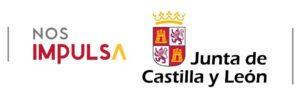CARTIF Projects
Lifetime characterisation, safety and recycling processes in batteries
Description
The general objective of this action is to develop technologies and strategies to improve the characterisation of the useful life of batteries, increase their safety and optimise recycling processes. To achieve this, a comprehensive approach is proposed that includes the detailed study of the behaviour of batteries under demanding conditions, the control of VOC emissions and the implementation of technological solutions that minimise risks and maximise their operational efficiency. The aim is to extend the useful life of the batteries and improve the recycling of their critical materials.
Objectives
- Characterisation of VOC emissions in batteries: Develop tools and methods to monitor VOC emissions during the life cycle of batteries, especially in extreme conditions.
- Optimisation of battery thermal management: Implement technological solutions that improve battery cooling, avoiding overheating and thermal runaway events.
- Extending battery life: Maximise battery durability through strategies that mitigate premature wear of battery materials.
Improved battery recycling: Develop advanced processes for the recovery of critical end-of-life battery materials. - Advanced VOC sensor monitoring: Integrate low-cost VOC detection sensors into electric vehicle monitoring systems.
Expected Results
- Increased safety in the use of batteries: Reducing risks of overheating and thermal runaway, minimising fires and explosions in urban applications.
- Extending the lifetime of batteries: By studying their behaviour under extreme conditions, premature failures will be prevented and their performance will be optimised.
- Optimising the recycling of critical materials: Developing more efficient recycling processes that promote a circular economy and reduce environmental impact.
- Innovation in materials and thermal management: Create advanced cooling components and systems that ensure stable and safe operation.
- Integration of advanced monitoring systems: Implement sensors and early detection tools to prevent incidents and improve the operability of electric vehicles.
R&D Line
- Research on metal recovery processes from batteries, brine, electronic equipment and other waste streams and equipment.
Grant to support investment for the improvement of the scientific and technological capacities of the Technology Centres of the Community of Castilla y León (2024)
File: 2024 CCTT 04

![]()
![]()
Total Budget: 280,000€
CARTIF Budget: 140,000€
Duration: 19/09/2024 – 31/05/2025
Co-financed with ERDF funds contributing to the Policy Objective ‘OP 1: A more competitive and smarter Europe, promoting innovative and intelligent economic transformation and regional connectivity to information and communication technologies’.
Responsable
Juan Castro
AP Division
Networking
CCTT Infrastructues projects:
ICARUS
ICARUS will represent a breakthrough in the research and demonstration of new technologies to upgrade Secondary Raw Materials ensuring similar quality as primary raw materials, of three waste streams to improve circular economy principles in several intensive industries with its implementation in the construction sector
Controlled Environment and Plant Health Pilot (PAC-SAVE)
CARTIF ProjectsPAC-SAVEControlled Environment and Plant Health PilotDescriptionCARTIF's PAC-SAVE project aims to develop a Controlled Environment and Plant Health Pilot to investigate the resilience of crops and forests to climate change. Through advanced technologies...
Waste treatment for energy and material recovery in industrial processes
Increase the extractability of protein sources and other compounds of nutritional interest, naturally present in by-products generated in the transformation processes of the food industry, through the use of “green technologies” of pre-treatment such as extrusion
High-pressure processes for the generation of high value-added products
Increase the extractability of protein sources and other compounds of nutritional interest, naturally present in by-products generated in the transformation processes of the food industry, through the use of “green technologies” of pre-treatment such as extrusion
Advanced technologies for the development and characterisation of 3S food: healthy, sustainable and safe
Increase the extractability of protein sources and other compounds of nutritional interest, naturally present in by-products generated in the transformation processes of the food industry, through the use of “green technologies” of pre-treatment such as extrusion
Study of the use of alternative protein sources from agro-industrial by-products.
Increase the extractability of protein sources and other compounds of nutritional interest, naturally present in by-products generated in the transformation processes of the food industry, through the use of “green technologies” of pre-treatment such as extrusion
Incorporation of new equipment and processes to improve the advance digital manufacturing laboratory
Acquisition of advanced technological elements to enhance rapid prototyping services, as well as to support specific developments in the challenging processes of creating objects that are not available on the market or are costly to produce in limited quantities.
Agrigenomics and next-generation sequencing technologies
Implement advanced solutions to solve various problems linked to the agro-forestry and food sectors in Castilla y León, such as soil degradation, low agricultural productivity or the incidence of pests and diseases
Study of the mechanical behaviour of recycled composite from the aeronautical industry and wind turbine blades.
Increase knowledge of the mechanical behaviour of recycled materials from the aeronautical industry and wind turbine blades.
Efficient recovery of metals from spent EV batteries
The project focuses on the recovery of critical metals present in the cathode of spent electric vehicle battery cells, through a more environmentally sustainable process, for their future reintroduction into the value chain.
PROBIO
The general objective of the PROBIO project is to work on broadening the spectrum of substrates that can be treated in fermentation processes for the production of renewable gases (biohydrogen and biomethane) and biocompounds of interest (volatile fatty acids).
Contribution to the substitution of fossil fuels by biofuels to help reduce global warming.
CARTIF projects Contribution to the substitution of fossil fuels by biofuels to help reduce global warmingDescriptionBiofuels offer greater energy security, lower greenhouse gas and particulate matter emissions, rural development, better vehicle performance and a...
Renewable hydrogen and natural gas production and storage
The project focuses on the development of an integrated process for the production of green hydrogen and hydrogen carrier molecules (energy carriers) for use as renewable fuels to replace current fossil fuels.
Sustainable process for the efficient recovery of metals from wasted electric vehicle batteries
Recovery of metal oxides present in the cathode of electric vehicle battery cells by means of hydrometallurgical and direct recycling processes.
Innovation in rapid methods for the detection of biomarkers of interest in agri-food, environmental health and biomedicine
Las líneas de investigación de CARTIF en calidad de aire interior y mejora de la calidad alimentaria buscan ir un paso más allá en las capacidades analíticas y experiencia que se tienen actualmente para trabajar en aplicaciones dentro de los sectores de la salud ambiental, la agroalimentación y la biomedicina.
Sustainable Biofuel Generation and Purification Process
The project is focus on the valorisation of agro-industrial organic residues for the production of biomethane, through anaerobic digestion processes. Also, the use of technologies for the treatment of gaseous and liquid streams will be based on membrane contactors and reverse osmosis membranes, respectively. On the other hand, pretreatment of samples with microwaves will also be studied.
New equipment in advanced digital manufacturing
This proposal focuses on the Fab LAb (Fabrication Laboratory) concept, which is a digital fabrication workshop for personal use, i.e. a space for the production of physical objects on a personal or local scale that brings together machines controlled by computers. Its particularity lies in its size and its strong link with society rather than industry.
Development of research lines on air quality and agro-ecological processes.
The research lines of AIR QUALITY and AGRO-ECOLOGICAL PROCESSES seek to achieve sustainable solutions to alleviate environmental problems such as poor air quality, urban green regeneration, environmental well-being in cities, management and restoration of urban watersheds, sustainability in the use of resources and energy in cities, conservation of urban ecosystems…

















